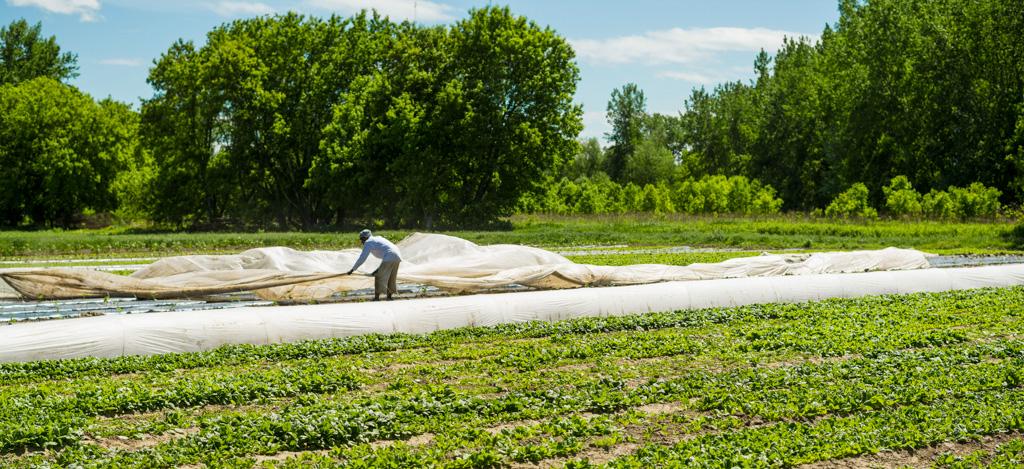So far, over 40 farms have reached out to the Northeast Organic Farming Association of Vermont (NOFA-VT) to share that they have been adversely impacted by the flooding, ranging from isolated losses of fields/infrastructure/etc. to complete devastation across the farm. Many folks are still in the early stages of assessing the impact as the flood waters have finally started to recede overnight.
Floodwaters can be extremely damaging to farms. Flooded fields can render the food unsellable per USDA safety regulations or even kill the plants altogether, grazing animals need to be evacuated from flooding pastures, expensive infrastructure is vulnerable to damage, and impassable roadways limit access for farmers to get their products to market and force the cancellation of sales.
Currently, NOFA-VT is collecting information from farmers online and making calls directly to farmers to check up on how people are doing. Based on people's individual needs, they are starting to mobilize their own resources (including expertise from our staff, volunteer labor, and emergency grants) and preparing to work with other organizations and agencies to get aid to the right places.
In a massive show of solidarity and community, Vermonters have rallied to contribute to NOFA-VT’s Farmer Emergency Fund to support their neighbors. People who want to support local farms impacted by this crisis can contribute to the fund, and the money will be quickly mobilized to farms as they repair.
Close proximity to rivers can be a boon to farmers during normal conditions, providing rich soils, water for irrigation, and flat places to grow. However, as the climate becomes increasingly volatile, the risk of devastation grows. Already this year farmers have contended with unseasonably hot weather in the early spring, unexpected harsh frosts in May, and poor air quality from the wildfires in Quebec during the height of the growing season. Small and medium sized farms using organic practices have been hard-hit by this disaster, and they work day in and day out to mitigate the effects of climate change, sequestering carbon in healthy soils, fostering biodiverse ecosystems, and keeping folks fed in their communities.
NOFA-VT’s Executive Director Grace Oedel says, “The first thing we need to remember to do in times of crisis is harm mitigate and stand with the people who are most directly impacted.The second thing we need to remember to do in times of crisis like this is look for long-term systems change that will prevent catastrophes like this from happening again and again.”

